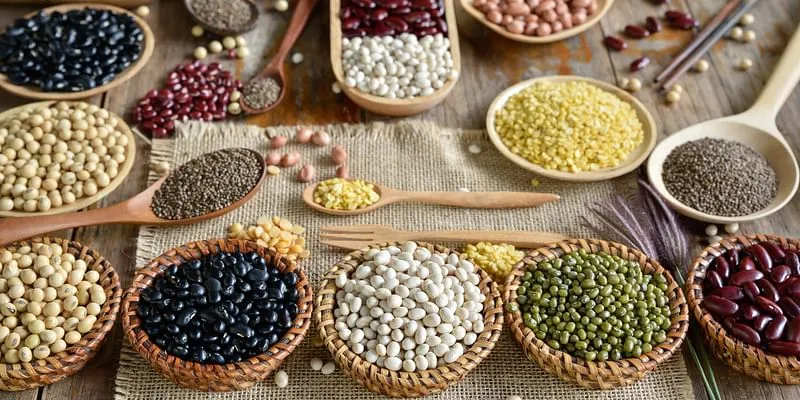Meet the woman entrepreneur who used ‘chakki’ to start an organic foods brand
Based in Bengaluru, entrepreneur and academician Shivi Jawalia started organic food brand Chakkiwalle, which offers around 240 different products, including flour, pulses, spices and masalas, among others.
Entrepreneur Shivi Jawalia saw a lull in her restaurant businesses — based in Bengaluru — as soon as the COVID-19 lockdown was announced last year.
"Hospitality sector was the first to be affected and will be the last to recover. It is not just fear and apprehension of people's health and well-being. Bangalore is a city of migrants but many returned home as work-from-home became a huge part of the new normal,” she tells HerStory.
When she moved to the city in 2010 after her wedding, Shivi and her husband saw little to no options when it came to North Indian food. The two started a Rajasthani-themed restaurant NH8, first at a 2,000 sq ft area Indiranagar, followed by a cloud kitchen, and two more restaurants by the same name at Orbit Mall, Whitefield, and Sahakara Nagar.
The business grew from strength to strength until COVID-19 struck. With just the cloud kitchen operating and only online deliveries to take care of, Shivi suddenly had a lot of free time.
For the academician who is often a guest lecturer at various institutes, this became just another opportunity to start yet another venture. She founded in May 2020 to offer organic flours, hand-ground spices, millets, dry fruits, pulses, and more.

The beginning
Shivi herself has been using a chakki (mill) and grinding flours for consumption at home instead of buying from the store for quite some time. She would also hand-pound spices and masalas at home. So, whenever her friends came over, they would always tell Shivi that her home food tasted very different.
This was also one of the reasons behind her starting Chakkiwalle. During the pandemic, she also put their farmland in the outskirts of Bengaluru — which had been lying idle for so long — to good use. Starting with atta, she started preparing half kg packets in very simple bags with just a phone number if customers want to order more.
Initially selling within their apartment complex, she would share a Google Form and ask them to add their orders there before developing an ecommerce website.
When messages started pouring in asking how the products were made, Shivi created WhatsApp and Telegram groups to share video snippets educating people about the process.
“We don’t stock up on these and advise them not to do the same as well and encourage them to order every seven days. So, we grind only after orders are placed to ensure fresh products,” she adds. Word of mouth through friends and family also played a big role in creating brand awareness.
Navigating the market
As people have become more health-conscious, demand and consumption of organic food have increased significantly in the last few years in India where the market for organic food is projected to grow from $177.14 million in FY20 to $553.87 million in FY26. Organic Tattva, Down to Earth Organic Food, and 24Mantra are among the key players in the same market space.
However, while most brands offer packaged organic food, Chakkiwalle prides itself on preparing flours, spices, and other products in small batches only after orders are placed.
Shivi is bullish about maintaining product quality over other features like packaging. “Our packaging is also very basic. It was initially because we didn’t have much to spend on it but we also don’t feel the need to lure people into buying something with fancy colours and packaging. Why not invest in adding real value in the product instead,” she says, adding that a meagre initial investment was also limited to just the packaging.
In fact, she says customers have expressed enjoying connecting with the entrepreneur and learning about the processes behind the organic products more than just ordering online.
Shivi was recently selected to be part of Goldman Sachs' 10,000 women entrepreneur programme that provides guidance and mentorship, networking opportunities, and access to capital, among other benefits.
At present, Chakkiwalle operates only within Bengaluru on a B2C model and has gained a good understanding of the products that are working and the ones that are not — out of its 240 products.
Moving ahead, Shivi hopes to expand NH8 to other cities through franchising and procuring all of its ingredients from Chakkiwalle.
This way, she says, both NH8 and Chakkiwalle will venture into the B2B model as well in the future.
Edited by Saheli Sen Gupta









